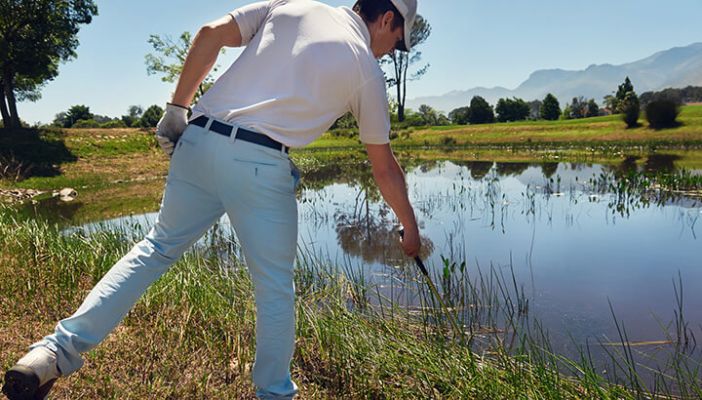Strictly speaking, the mulligan — the retaking of a bad shot without penalty — is absolutely forbidden. There is no mention of such a generous practice in the R & A rulebook, nor in local rules of any course.
However, between friends, the practice of granting a mulligan is a noble and humane gesture to make good on an otherwise woeful shot. A mulligan presents an opportunity to correct the outcome of the first shot and learn from the initial poor shot. It will also restore pride that was lost on the previous ball.
Mulligan origins
There are several theories about the origin of the term, none of which can be properly verified. The most likely connection comes from a Canadian amateur, David Bernard Mulligan, a high-profile character and member of many clubs in the 1920s and 1930s. The original story related to the “mulligan” only being offered on a bad drive off the first tee. In some circles, this remains the only opportunity to take a mulligan. However, it is more widely offered at any time during a social round.
‘Resort’ rules
Mulligans are part of a social golfing environment. You are here for a good time, not a long time! Assuming you are out for a casual round with friends be sure to agree beforehand on your mulligan conditions. How many mulligans are being allowed on the day? Are they only off the tee, or for any shot? Perhaps each player is given a book of mulligans at the start of the season – effectively “get out of jail” cards if you like.
It is up to you when you “cash them in” on the course. You could use a mulligan from a bunker, replay a short putt, drop a ball and play another to avoid a likely lost ball. Mulligans can make golf more fun (less painful), take some of the heat out of the competition and improve the pace of play.
Charity cause
There is the opportunity to use the concept of mulligans to raise money for charity. During a social or charity outing, why not consider placing a price on a mulligan. Maybe it’s ten bucks to retake a tee shot or five from anywhere else on the course. The money can be pooled and donated to whatever charity your club or group supports.
It is quite common on club fundraising days to see your Club Pro stationed at one of the par 3 holes, who will re-play your tee shot for a donation to whatever cause is being supported on the day. Obviously, if your own tee shot is the better shot, then you can play it. But having the Pro take your mulligan tends to reap rewards for your scorecard and definitely assists the charity! Charity team events will often raise extra cash by selling mulligans — these can range from drives and bunker shots to putts.
Immediate correction
Mulligans can actually improve your game. In ideal circumstances, you are fully aware of what caused the initial poor shot and likely aware of how to fix it. How often do we just want the chance to replay a rubbish approach shot and get it right the second time? The mulligan gives you that chance to make good on your error, while it’s still fresh in your mind, by allowing you to replay the shot straight away. It tends to be rare that a mulligan is not preferred over the original shot.
Take a risky shot
Blind moments of invincibility can also be contemplated if a mulligan is on offer. How often do regular golfers desire to go for the hero shot — the lengthy water carry, punch through a forest of trees or play a miraculous “Mickelson lob wedge” to a postage stamp location? Most know their chances of success are next to zero. However, having access to a mulligan means that they can indulge that fantasy — and then play a sensible, safety-first shot that keeps their scorecard relatively intact.
Anything that makes your golf round more enjoyable, and which is pre-agreed as allowable for that particular event, should be used. The trick is to work out when to use it. How will you know that there is not an absolute stinker a few holes following the bad shot you just hit? Don’t go too early with your mulligan — more often than not there are plenty of times to use one during a round. Use it wisely.
— N. Incoll
